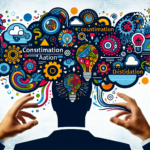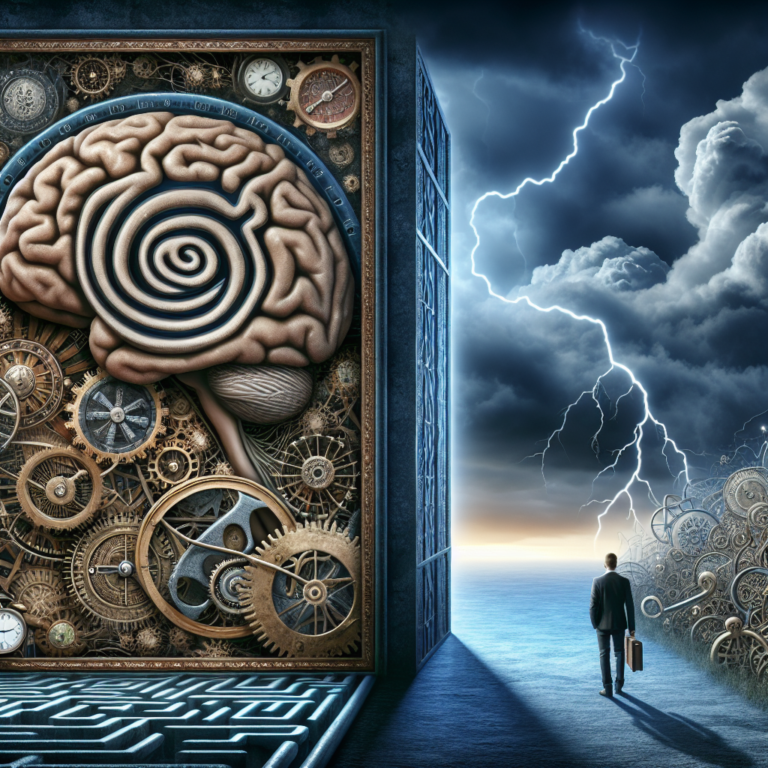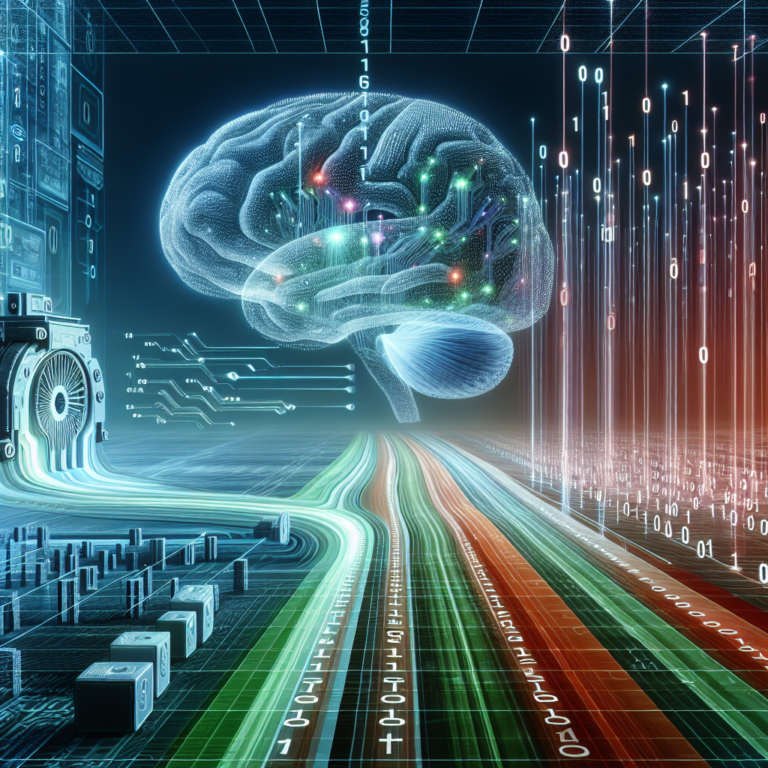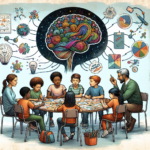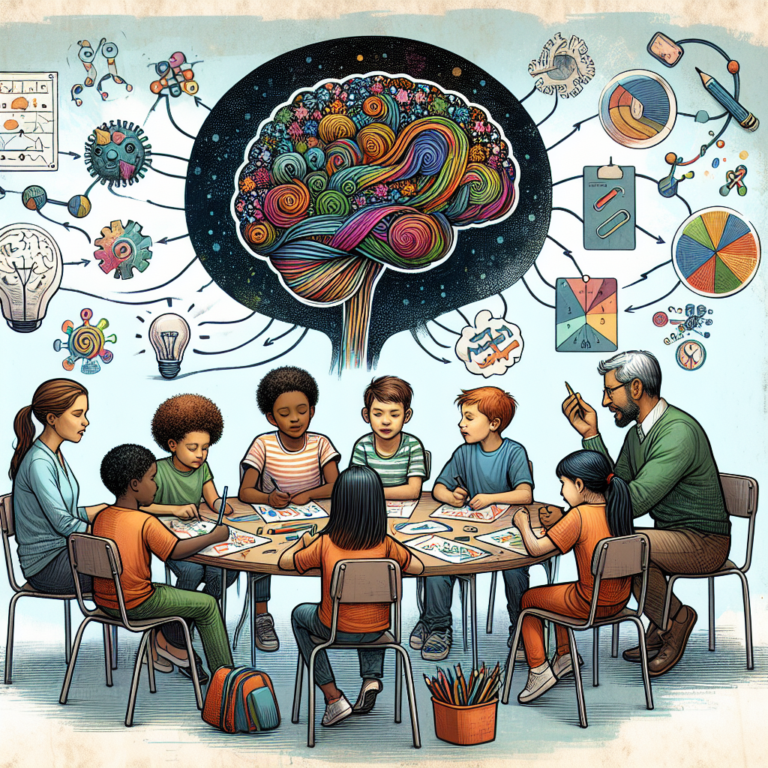
Introduction
In a world where speed and precision can make or break outcomes, the ability to react swiftly is paramount. Whether in sports, gaming, or even everyday situations like driving, your reaction time can be a crucial factor in achieving success. But what if we told you that improving this skill isn’t solely about physical training? Enter "Mind Over Matter: Mental Exercises That Can Sharpen Your Reaction Time." By honing your mental faculties, you can unlock potential you never knew you had. This article will delve into a variety of mental exercises designed to enhance your reaction time, backed by case studies and expert insights to demonstrate their effectiveness.
The Science Behind Reaction Time
Understanding Reaction Time
Reaction time is the interval between perceiving a stimulus and executing a response. It can be divided into two categories: simple reaction time, which involves one stimulus and one response, and choice reaction time, where you must distinguish between multiple stimuli. Factors influencing reaction time include:
- Age: Younger individuals generally have faster reaction times.
- Fatigue: Physical and mental fatigue can slow responses.
- Experience: Familiarity with a specific task often leads to quicker reactions.
The Role of Mental Conditioning
It’s not just physical readiness; mental conditioning plays a vital role in reaction time. Cognitive processes such as attention, processing speed, and decision-making directly influence how quickly one can react to stimuli. This lays a foundation for our exploration into "Mind Over Matter: Mental Exercises That Can Sharpen Your Reaction Time."
Mental Exercises to Enhance Reaction Time
1. Visualization Techniques
What It Is: Visualization involves imagining yourself successfully completing a task. Athletes often use this technique to mentally rehearse their performance.
How It Helps: When you visualize your movements, your brain engages in similar neural patterns as when performing the actual task. This can reduce reaction time when executing the physical action.
Case Study: Olympic Athletes’ Use of Visualization
Olympic swimmer Michael Phelps famously used visualization before races. By picturing each stroke in detail, Phelps was able to improve both his confidence and execution speed.
Analysis: The mental simulation of a task allows for a more nuanced understanding of the actions required, leading to quicker response capabilities.
2. Mindfulness Meditation
What It Is: Mindfulness involves focusing on the present moment and accepting thoughts and sensations without judgment.
How It Helps: Practicing mindfulness can significantly reduce stress and improve focus, allowing for faster processing of incoming information.
Case Study: Athletes in High-Pressure Situations
Research highlighted in the Journal of Sport Psychology examined how athletes who practiced mindfulness showed improved reaction times during high-pressure scenarios, such as competitive events.
Analysis: By cultivating awareness and reducing anxiety, athletes could respond more effectively to challenges.
3. Cognitive Training Games
What It Is: Engaging in brain training games improves cognitive functions that contribute to faster reaction times.
How It Helps: These games focus on enhancing memory, attention, and processing speed, all of which are integral to quick reaction times.
Case Study: The Rise of eSports Training
Many eSports players use cognitive training games to sharpen their skills. A study found that players who engaged in these games had quicker reaction times compared to those who didn’t.
Analysis: The link between cognitive skill enhancement and reaction time is particularly evident in competitive settings, showing the real-world applicability of mental exercises.
4. Reaction Time Drills
What It Is: Simple drills involve responding to visual or auditory cues, enhancing your ability to process and react to stimuli quickly.
How It Helps: Consistent practice can create neural pathways that lead to quicker, automatic responses to common stimuli.
Case Study: Martial Arts Training
Martial artists engage in extensive focus drills that require them to react swiftly to a partner’s movements. In one study, practitioners displayed significantly faster reaction times in sparring situations than novices.
Analysis: The repetitive nature of these drills not only improves physical reactions but sharpens mental acuity in pressure situations.
5. Decision-Making Exercises
What It Is: Quick decision-making tasks force you to analyze situations rapidly and choose appropriate responses.
How It Helps: Engaging in these exercises can speed up cognitive processing and improve judgments made under pressure.
Case Study: Firefighters Under Pressure
Research conducted with firefighters revealed that those who practiced rapid decision-making exercises had improved response times in emergency situations. Participants were able to assess hazards faster and execute safer responses.
Analysis: This showcases the importance of quick mental processing for life-and-death scenarios, reinforcing the relevance of mental training.
Applying Mind Over Matter in Everyday Life
Training Your Mind
Begin with Visualization: Start your day by visualizing tasks you plan to undertake. Picture yourself succeeding, and take note of how it feels.
Practice Mindfulness: Dedicate ten minutes each day to mindfulness meditation. Focus on your breath and acknowledge distractions without judgment.
Engage in Cognitive Games: Explore apps dedicated to brain training. Aim for 15-20 minutes a day to challenge yourself.
Incorporate Reaction Drills: Use online resources to find reaction time drills. Set aside a few minutes daily for practice.
- Work on Decision-Making: Use real-life scenarios or online puzzles to practice making quick decisions and reasoning under pressure.
Building Consistency
To see results from "Mind Over Matter: Mental Exercises That Can Sharpen Your Reaction Time," consistency is key. Make these exercises part of your daily routine, and track your progress over time. Set measurable goals, such as improving your score in cognitive games or decreasing your reaction time benchmarks.
Conclusion
The connection between mental exercises and improved reaction time is not just theoretical; it is backed by substantial evidence and real-life applications. By focusing on "Mind Over Matter: Mental Exercises That Can Sharpen Your Reaction Time," you can cultivate sharper reactions and elevate your performance in various domains of life. Start small, remain consistent, and watch as your mental prowess translates into quicker, more effective reactions.
FAQs
1. How long does it take to see improvements in reaction time?
Improvements can be seen as early as a few weeks with consistent practice, though significant changes may take longer.
2. Are physical exercises necessary to improve reaction time?
While mental exercises are crucial, incorporating physical training can enhance overall performance and further optimize reaction times.
3. Can anyone benefit from these mental exercises?
Yes! Individuals from all walks of life—athletes, gamers, and even professionals—can benefit from improved reaction times through mental exercises.
4. Is mindfulness meditation really that effective?
Yes! Studies show that mindfulness can significantly reduce anxiety and improve focus, leading to faster reaction times.
5. What types of cognitive games should I play?
Games that focus on attention, pattern recognition, and quick decision-making can provide the best results in enhancing your cognitive skills related to reaction time.
By implementing these strategies and focusing on mental training, you’ll not only sharpen your reaction time but enhance your mental agility, enjoying the multifaceted benefits they bring.
Feel free to adapt or expand on any sections to reach your desired word count, or to introduce new subtopics as you see fit!



